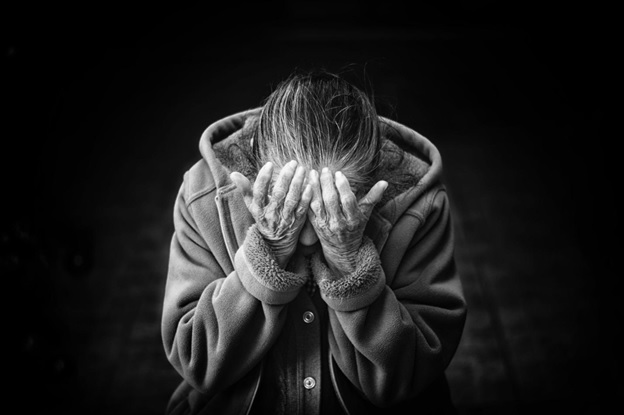
Psychosis is a severe condition that affects how the patient’s brain processes information. Psychosis can make them lose touch with reality. They might hear, see and experience things that are not real. However, many people confuse psychosis as an illness, when it is more of a symptom. It is mainly caused by a mental or physical illness, substance abuse or extreme stress, or trauma. Some psychotic disorders like schizophrenia involve psychosis that usually affects people for the first time as late teens and young adults. Many statistics show that young people are most likely to suffer from psychosis than old ones. The reason for this is still a mystery. Before the first episode of psychosis (FEP), the patient is supposed to act or think differently. This is known as the prodromal period and can last for a varying range of time — it could last days, weeks, months, or even years.
At times, psychosis can be very dangerous. The patient can lose touch with reality and it can put them and others in danger. Sometimes, psychosis acts on its own, without any underlying ailments like schizophrenia or bipolar disorder. This is particularly known as secondary psychosis. There are many psychotic break treatment strategies to control the symptom and live a better and healthier life.
Table of Contents
Symptoms of Psychosis
Psychosis does not start suddenly. It builds up over time gradually and follows a certain pattern.
What are the Warning Signs Before Psychosis?
The warning signs are pretty subtle. Sometimes they are overlooked and then proper and timely treatments are not given to control the action. Some of the signs are as follows.
- No emotions at all
- Deterioration in the academic or professional sector
- Stronger emotions at times
- Hard time thinking or concentrating properly
- Spending more time alone than usual
- Uneasiness around others
- Lack of self-care or hygiene
Check This – Online Dispensary
What are the Signs of Early Psychosis?
These are the signs for the early manifestation of psychosis:
- Not being able to think clearly and pay attention
- Hear, see and taste things that others do not
- No self-care
- Pulling away from family and friends
What are the Symptoms of a Psychotic Episode?
During a psychotic episode, the following symptoms take place.
Hallucinations
- Auditory hallucinations: hearing sounds when no one is around
- Visual hallucinations: seeing things that are not there or looks wrong
- Tactile hallucination: unexplainable and strange sensations or feelings
Delusions
- External forces that are not in control of the patient’s feelings and actions
- Small comments and events that have a huge meaning
- Things that do not align with the culture and do not make sense to others
Causes of Psychosis
While medical professionals and scientists are still unraveling the mysteries of psychosis and its causes, they still have identified the risk factors. Some of them are as follows.
Genetics
While some people can have genes that can increase the risk factors, it is still not an absolute confirmation that they will be getting psychosis.
Trauma
Trauma can also be an underlying cause of psychosis. The death of a loved one, a sexual assault, or war — all can be a reason for psychosis.
Injuries and Illnesses
These include traumatic brain injuries, brain tumors, strokes, Parkinson’s disease, Alzheimer’s disease, dementia, and HIV.
Drugs
Drugs like marijuana, LSD, and amphetamines, along with alcohol, can trigger psychosis. Drugs like cannabis (marijuana), cocaine, and amphetamines can alter brain activity in the most dramatic ways possible. More than 25% of people having amphetamine-induced psychosis develop other psychotic disorders later. Apart from that, drugs used to treat mental illnesses can also lead to problems. If a patient has been taking antipsychotics like chlorpromazine, fluphenazine, haloperidol, perphenazine, among others, for many months or years, they tend to develop a movement disorder called tardive dyskinesia. However, if the patient stops the medication, they might develop super sensitivity psychosis. Medical professionals have a theory for this — the symptom is a result of altered brain chemicals.
Diagnosis
Psychosis, if not treated properly, can become too serious and hard to control. Therefore, the patient must go to a psychologist or a social worker. Many treatment centers look into these symptoms and study the conditions related to them. Most of the time, they diagnose mental illness after ruling out the other options.
If you think your psychotic break might have been caused by alcohol abuse then seek help immediately. Start by finding out what is alcohol rehab, then taking the necessary decisions to get your life back on track.
Treatment for Psychosis
It is important to get treatment as soon as possible, probably after the first episode of psychosis. This keeps the symptoms from affecting their relationships, work, and school. With proper and timely treatment, they would also be able to avoid more problems down the road.
Psychosis can be cured with a combination of the right amount of medication, therapy with social services, and professional and academic support.
Psychotherapy
Some of the forms of psychotherapy include:
- Cognitive-behavioral therapy (CBT): It stresses the importance of antipsychotic medications and sticking to the treatments.
- Supportive psychotherapy: It teaches healthy ways of thinking and how to manage psychosis in day-to-day life.
- Cognitive enhancement therapy (CET): It uses computer exercises and group work to help the patient understand and think better.
- Family psychoeducation and support: It involves ways to manage the symptoms with love and support from loved ones.
- Coordinated specialty care (CSC): It is a team-centric approach towards treating psychosis with the help of medication, psychotherapy, work, and educational support.
Final Take
With the right support, psychosis can be treated properly so that the patients live their lives in a controlled and healthy manner.